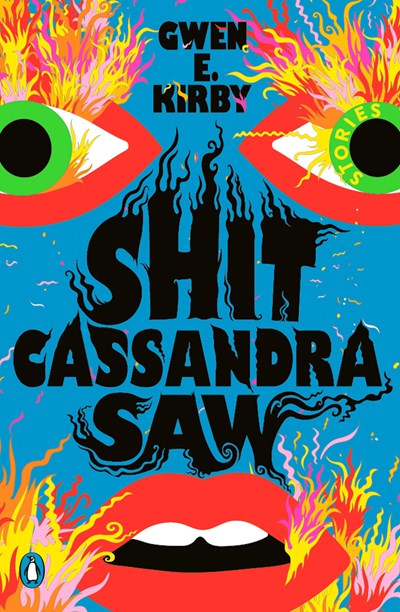[ad_1]
The oracular in Gwen E. Kirby’s Shit Cassandra Saw is tense business—fraught with the dynamics of shared experience, speaking and listening. This collection of short stories reminds me of a woman who used to ride Chicago’s Red Line. You could tell when she was on the train because when it pulled into its next stop, people would dash from the car that she occupied into one of the adjoining cars. You’d come face to face with a Cassandra herself, clutching one of the car’s metal handholds. You thought you were on your commute north home after a day of branding downtown, but suddenly your future was laid open for you. “You are going to die,” the woman would say, her eyes tuned just to your right. Should you argue or laugh? Sometimes the word is spoken bluntly; often it’s left unheard as the other junk in this morning’s news feed. But in the stories of Shit Cassandra Saw, Kirby takes that junk and refashions it into a sequence of blunt wonders.
Kirby’s stories open in what the Homeric hymns term that other “windy city,” Troy. An exhausted, contemporary Cassandra measures her own moment. Kirby writes, “And the words! Profusions of nonsense…the next torrent of words so swift behind they must sell or be destroyed, only enough space left on the shelf for the new.” Cassandra’s vision moves on to other spaces of seeing but not quite believing. Writing a restaurant review, a man tries to inhabit the authenticities of a Maryland crab shack that were promised by Yelp, but comes face to face with the cruelties of gendered space. Attempting defiance, young Midwestern women come of age in the eyes and stories of men. Women contort themselves into the shapes demanded of them by breakups, violence, and simple costs of being.
One of the most interesting facets of Kirby’s stories is their capacity to remeasure the links between prophecy and trauma. At root, Cassandra’s tale is one of violence and lost voice. As Kirby describes it, “It is said that, when [Cassandra] refused [Apollo’s] advances, he spit in her mouth so that she would never again be believed. A virgin the same as a seduced woman the same as a violated woman the same as a willing woman, all women opening their mouths to watch snakes slither out and away.” Throughout this collection, Kirby experiments with form as a means of speaking one’s capability to witness. Narratives again and again rethink the distance between a culture’s core violences and our capacity to voice them. As her narrators struggle to find their own voices, it can be vicious play. Comic impulses that distend the gut, shocked but silent. Hard stuff.
But laughter is a shared experience. In all, Kirby’s shocking humor brings her readers face to face with one of those core experiences of the last decade, one that asks Am I believing what I’m seeing? The violence readily opened in the culture. The routine denial and projection. Voices denied and treaties broken. The wooden horse sitting in plain sight stuffed with those who mean the city’s destruction. Read these stories and listen to the silence planted there.

FICTION
Shit Cassandra Saw
By Gwen E. Kirby
Penguin Books
Published January 11, 2022
[ad_2]
Source link

